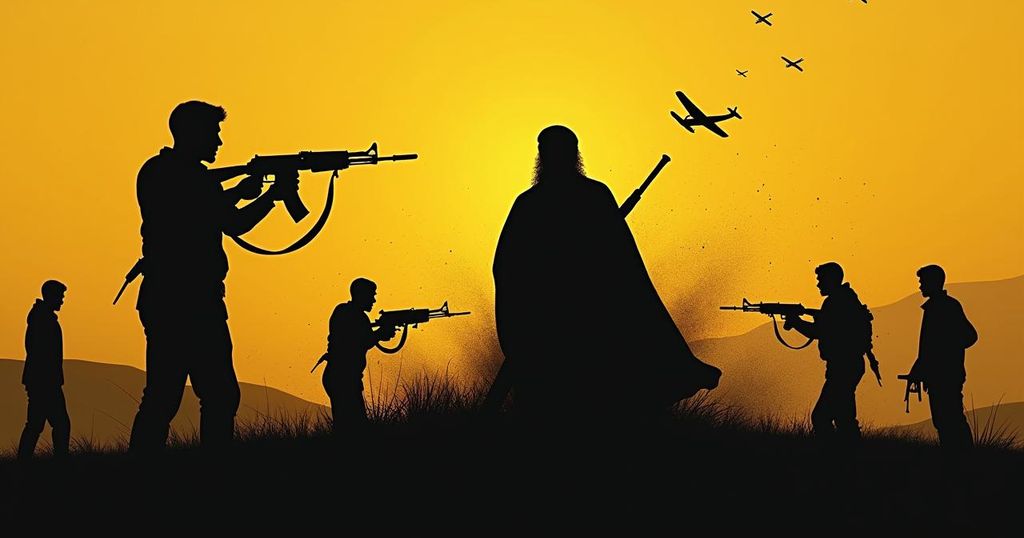Hassan Nasrallah: Legacy and Implications Following Assassination
Hassan Nasrallah, the Hezbollah leader, was killed in an Israeli airstrike in Beirut. His leadership, marked by resistance against Israel, faced challenges due to Hezbollah’s role in Syria and the 2005 assassination of Rafik Hariri. Born in 1960, Nasrallah transformed Hezbollah into a prominent political force. His death poses significant challenges, prompting a pivotal leadership transition that will impact Lebanon and the wider region.
In a significant development, Hassan Nasrallah, the long-serving leader of Hezbollah, was reportedly killed in a substantial Israeli airstrike on Beirut, as confirmed by the Lebanon-based organization. This event has profound implications both for Hezbollah and the broader geopolitical landscape of the region. Nasrallah’s leadership of Hezbollah began during a time of immense conflict with Israel, especially marked by the conflict in 2006, which bolstered his stature as a hero among various groups, extending beyond Lebanese borders. However, this perception shifted when Hezbollah participated in the Syrian civil war to defend the regime of President Bashar al-Assad. As a result, many began to view Nasrallah not merely as a resistance leader but rather as an operative serving Iranian interests, which earned him criticism from several Arab nations. His troubled legacy is further complicated by his association with the assassination of former Lebanese Prime Minister Rafik Hariri in 2005, with an international tribunal later indicting members of Hezbollah for the crime. Nonetheless, Nasrallah maintained steadfast support from his core constituency of Shia Muslims in Lebanon, who regarded him with an air of reverence. Born in 1960 in East Beirut, Nasrallah was the youngest of nine siblings and was known to possess a deep religious inclination from an early age. He became involved in the Lebanese political milieu during a tumultuous period characterized by civil warfare, initially joining the Amal movement before eventually establishing Hezbollah in response to Israeli aggression in 1982. Under his guidance, Hezbollah emerged as a formidable political and military force, increasingly intertwining its governance with Lebanese politics. Throughout his tenure, Nasrallah was renowned for his eloquence and ability to connect with the common people, utilizing accessible language while addressing profound issues affecting the Lebanese populace. His speeches often combined political rhetoric with religious undertones, endowing him with a charismatic presence that resonated widely across sectarian lines. The 1992 election marked Hezbollah’s formal entrance into Lebanese politics, a strategic maneuver spearheaded by Nasrallah that ensured the party’s participation in the democratic process. Over three decades, he solidified his influence over the group without holding any formal government position, although critics have posited that this power stemmed from Hezbollah’s armed capabilities. Most recently, Nasrallah had faced discontent among various factions within Lebanon due to widespread protests demanding political reform, yet he was still regarded as a champion of Shia rights. Nonetheless, his allegiance to Iran complicated perceptions of his leadership, particularly in light of Hezbollah’s military engagements in support of Hamas in Gaza, which further strained relations within the region. In light of Nasrallah’s assassination, Hezbollah now confronts a pivotal moment as it seeks to appoint a new leader capable of navigating the group’s future direction amidst an increasingly challenging geopolitical landscape. The ripple effects of this transition will undoubtedly extend beyond Hezbollah, impacting the complex matrix of Lebanese and Middle Eastern politics.
Hassan Nasrallah has been a defining figure in Hezbollah and Lebanese politics, shaping the group’s response to foreign intervention and domestic unrest since its formation in the early 1980s. As Israel’s operations targeted Hezbollah, especially during crises, Nasrallah cultivated an image of resistance against oppression, thereby garnering substantial support. However, new realities, including the Syrian civil war and mounting criticism regarding Hezbollah’s actions, have altered how he was perceived across various Arab nations. His death now invites scrutiny regarding Hezbollah’s stability and future operational strategies, within a broader context of Middle Eastern geopolitical tensions.
Hassan Nasrallah’s assassination marks a significant turning point not only for Hezbollah but also for the political landscape of Lebanon and the broader region. As the organization grapples with this loss, it will need to determine a new leadership direction that resonates with its base while also addressing external pressures from regional adversaries. The ramifications of this leadership transition are likely to be far-reaching, influencing not just Hezbollah’s operations but the intricate dynamics of Lebanese politics and its relations within the region.
Original Source: kashmirreader.com




Post Comment